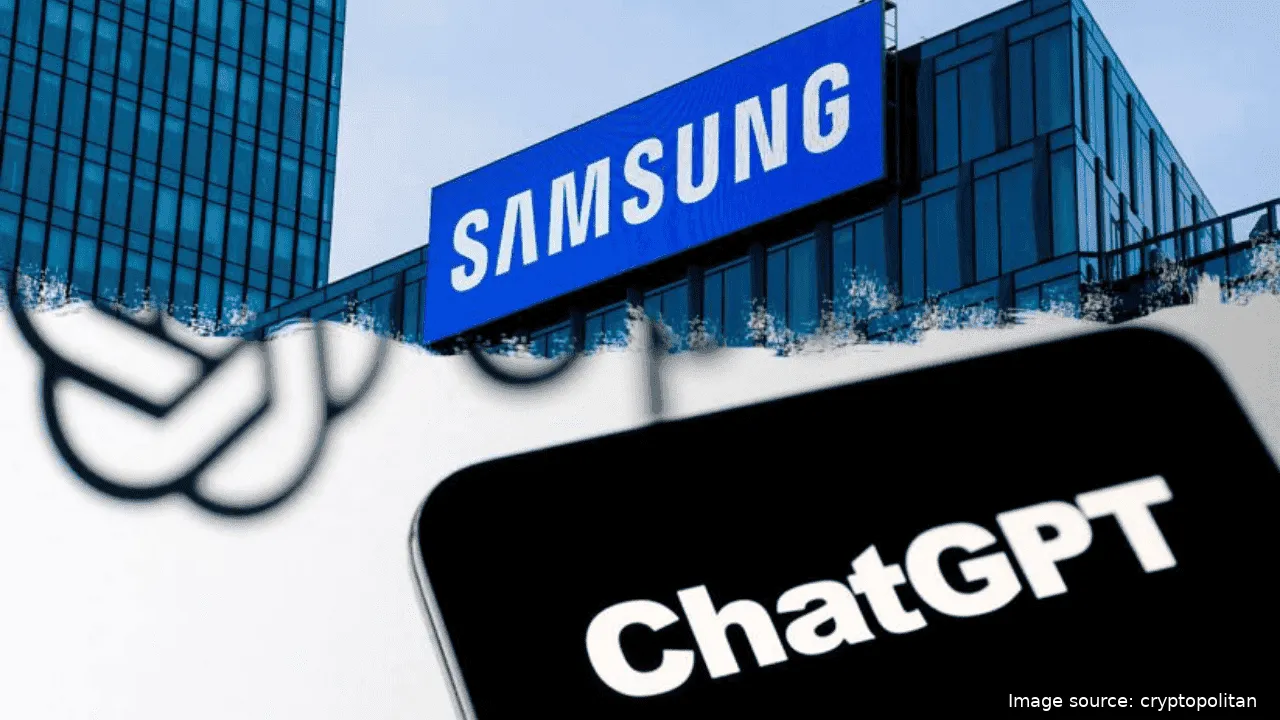
Technology is advancing rapidly, and one area that is gaining attention is artificial intelligence. However, not everyone is comfortable with the implications of these advancements. Samsung Electronics Co., one of the largest technology companies in the world, has banned the use of popular generative AI tools by its employees. The decision came after the company discovered that sensitive code was uploaded to the platform. It could lead to a security breach.
Samsung bans the use of AI tools like ChatGPT by employees for security concerns

The use of generative AI platforms like ChatGPT has been growing, both internally and externally. However, Samsung is concerned about the risks associated with such technology. Data transmitted to external servers via these platforms can be difficult to retrieve and delete, which may lead to unauthorized disclosure. The company conducted a survey last month. It revealed that 65% of respondents believed that AI services pose a security risk.
Earlier this year, some Wall Street banks, including JPMorgan Chase & Co., Bank of America Corp., and Citigroup Inc., restricted or banned the use of OpenAI's chatbot service due to similar concerns. Other companies also barred the use of ChatGPT over privacy fears, although it later reversed its decision.
Samsung's new policy bans the use of generative AI systems on company owned devices and internal networks. However, it does not affect the company's devices sold to consumers. The company has also warned employees who use ChatGPT and similar tools on personal devices not to submit any company related information or personal data that could reveal its intellectual property.
Failure to adhere to the new policies could result in disciplinary action, including termination of employment. The company is creating its own internal AI tools for translation and summarizing documents, as well as software development. It is also working on ways to ban the upload of sensitive company information to external services.
ChatGPT, the platform that caused the breach, has added an "incognito" mode that allows users to block their chats from being used for AI model training. Samsung is reviewing security measures to create a secure environment for using generative AI to enhance employees' productivity and efficiency. Until these measures are in place, the company has temporarily restricted the use of generative AI.
The Risks of Storing Data on External Servers and Accidental Leaks Prompt Samsung to Take Action

Samsung's decision is a significant setback for the spread of generative AI technology in the workplace. However, it is not the only company expressing concern about the technology's risks. The use of AI platforms is growing rapidly, and companies must balance the potential benefits with the potential risks.
As technology continues to advance, companies must remain vigilant about the risks associated with new technologies. The use of AI platforms can be beneficial, but companies must ensure that they are using them responsibly and taking appropriate measures to protect sensitive data. Samsung's decision to ban the use of generative AI tools is a step in the right direction. And other companies may follow suit.
One potential solution to the security risks associated with generative AI platforms is the development of secure in-house tools. By creating their own internal AI tools, companies can ensure that sensitive data remains within their own network. Reducing the risk of unauthorized access. Additionally, companies can tailor these tools to their specific needs, which may not be possible with external platforms. While developing these tools may require additional resources, the long-term benefits may outweigh the costs in terms of improved security and productivity. Samsung is already taking steps in this direction. And other companies may follow suit as concerns about the security risks associated with AI platforms continue to grow.
In conclusion, Samsung's decision to ban the use of generative AI tools is a significant setback for the spread of such technology in the workplace. However, it is a necessary step to address the security risks associated with these platforms. Companies must remain vigilant about the risks associated with new technologies and take appropriate measures to protect sensitive data. As technology continues to advance, it is essential to strike a balance between the potential benefits and risks associated with new technologies.
Popular News
Latest News
Loading



